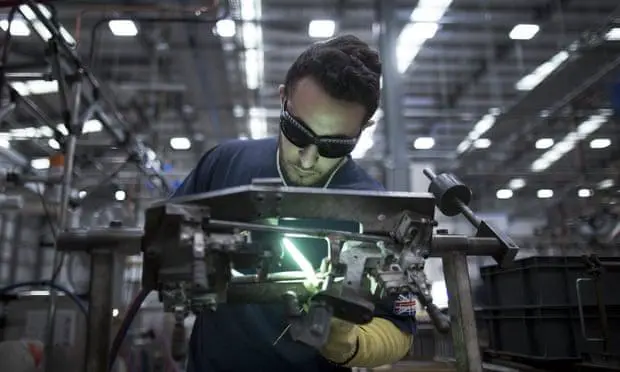The Trades Union Congress has called on the government to set a target to create 1m manufacturing and high-tech jobs by 2030 to bolster its industrial strategy.
In a report on the government’s flagship industrial policy, which launched a year ago, the unions’ umbrella group said too little progress had been made and greater checks on its progress was needed.
It urged the government to set targets to ensure the policy achieves its aims of boosting jobs, investment and improving workers’ pay by helping UK business to become more productive.
Manufacturing groups have lamented the lack of meaningful progress made since the launch of the industrial strategy, while others have criticised the policy as vague and lacking in measurable outcomes.
Although a council to check on its progress was promised at the time of its launch, it took almost a year before it was established under Andy Haldane,the chief economist of the Bank of England.
Frances O’Grady, the TUC general secretary, said very little had been achieved: “Too many parts of Britain have been held back by a lack of decent jobs. They deserve better.
“That means businesses, government and trade unions working together, locally and nationally, to bring high-tech industries to more places across the UK.”
The TUC said the target to create 1m manufacturing and high-tech jobs by 2030 was “ambitious but realistic” and would dovetail with the government’s aim of reducing carbon emissions by 57% by 2030 compared to 1990 levels.
About 2.6 million people across the UK work in manufacturing jobs, with the sector accounting for 44% of all UK exports and 70% of business research and development.
Manufacturing has become a smaller part of the UK economy since the 1970s, shrinking from almost a third of economic output to around a 10th, while jobs have also been lost.
The TUC said however that sustainable industry and green technology could be one of the key planks in delivering new manufacturing jobs in the future, while arguing that targets could help boost the chances of the policy achieving its aims.
The report said: “It could be argued that concrete commitments and accountability focus the minds of politicians in a way that arguing for manufacturing strength, in an abstract sense, does not.”
Other recommendations by the TUC include a target for a third of the industrial strategy challenge fund to be directed toward investments known to be providers of quality employment, as well as a twice-yearly review into the number of roles it has helped to create.
It also said local enterprise partnerships ought to work with unions to develop growth plans as part of the industrial strategy, while also demanding that unions are involved in talks to create sector deals – a key part of the industrial strategy giving government backing to particular industries.
A spokesperson for the Department for Business, Energy and Industrial Strategy said: “We are getting on with delivering the modern industrial strategy with record levels of investment in R&D, the fastest growth in infrastructure spending in the G7, the biggest shakeup to technical education in a generation and sector deals to put the UK at the forefront of the industries of the future.
“The independent Industrial Strategy Council is holding the government to account by monitoring the success in delivering the industrial strategy and its impact on the economy.”
(THE GUARDIAN)
 简体中文
简体中文

